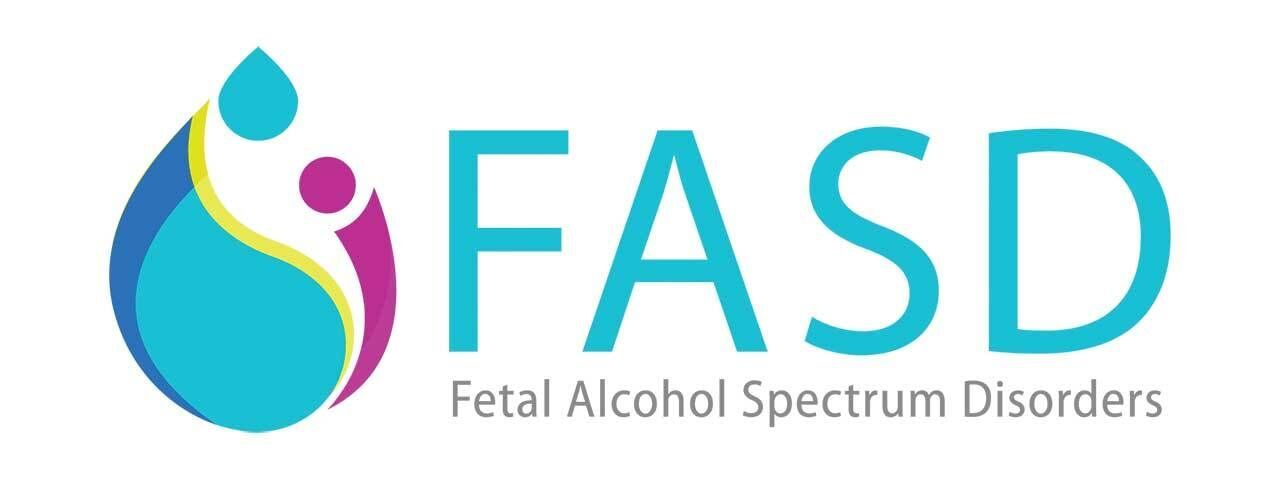
The term fetal alcohol spectrum disorders (FASD) refers to the wide range of physical, behavioral, and cognitive impairments that occur due to alcohol exposure before birth (also known as prenatal alcohol exposure). These impairments may appear at any time during childhood and last a lifetime.
What Causes Fetal Alcohol Spectrum Disorders and How Are They Prevented?
Alcohol exposure during pregnancy can result in FASD by interfering with development of the baby’s brain and other critical organs and physiological functions. This can lead to deficits after birth and beyond. Alcohol can disrupt development at any stage, even before a woman knows that she is pregnant.
Research shows that binge drinking and heavy drinking during pregnancy put a developing baby at the greatest risk for severe problems. However, even lesser amounts can cause harm. In fact, there is no known safe amount of alcohol consumption during pregnancy.
What Are the Types of Fetal Alcohol Spectrum Disorders?
The term fetal alcohol spectrum disorders (FASD) refers to a range of physical, cognitive, and behavioral abnormalities caused by prenatal alcohol exposure. Depending on the features identified, the disorders categorized as FASD include:
- Fetal alcohol syndrome
- Partial fetal alcohol syndrome
- Alcohol-related neurodevelopmental disorder
- Alcohol-related birth defects
- Neurobehavioral disorder associated with prenatal alcohol exposure
Prenatal alcohol exposure and central nervous system involvement are factors common to the disorders encompassing FASD. Evidence of central nervous system involvement can be structural (e.g., small brain size, alterations in specific brain regions) or functional (e.g., cognitive and behavioral deficits, motor and coordination problems).
For fetal alcohol syndrome—which is also characterized by growth deficiencies, distinct facial features, and other physical factors in addition to CNS involvement—confirmation of prenatal alcohol exposure is not required.
What Are the Symptoms of Fetal Alcohol Spectrum Disorders?
Individuals with FASD experience day-to-day challenges, which may include cognitive and behavioral impairments as well as secondary disabilities including medical, educational, mental health, and social challenges, throughout their life. They are also subject to stigmatization for their disorder. People with FASD may have difficulty in the following areas:
- Learning and memory
- Understanding and following directions
- Switching attention between tasks
- Controlling emotions and impulsivity
- Communicating and developing social skills
- Experiencing depression and anxiety
- Performing daily life skills, including feeding, bathing, counting money, telling time, and minding personal safety
What Are the Interventions or Treatments for Fetal Alcohol Spectrum Disorders?
There are various approaches that may help reduce the symptoms of FASD and lessen the impact on affected individuals and their families. These include education and behavioral interventions for individuals with FASD and their caretakers as well as medications, social support, case management, and other services for children and adults with FASD.13,14 New interventions are currently being developed and evaluated. These treatments include:
- Prenatal nutritional supplements for pregnant women and postnatal supplements for their children
- Learning and behavioral interventions aimed at improving cognition, daily life skills, and impulsive behavior
- School-based approaches focused on specialized teaching strategies and computer-based games
- Mobile health apps and other interventions that support families and caregivers to assist them in caring for children with FASD
Resources
New Jersey Resources
Webinar with FASD United

List of Doctors
Joseph M. Sanzari
- Children’s Hospital at Hackensack University Medical Center Developmental Care
- 30 Prospect Ave Hackensack, NJ 07601
- 551-996-5555
https://www.hackensackmeridianhealth.org/services/pediatrics/developmental- medicine/
St. Joseph’s Children’s Hospital Child Development Center
- 703 Main St Patterson, NJ 07503
- T: 973-754-2510
- https://stjosephshealth.org/
Children’s Regional Hospital at Cooper University Hospital Child Development Center
- Three Cooper Plaza, Suite 200 Camden, NJ 08103-1489
- T: 856-342-2257 or 856-342-2226
- https://www.cooperhealth.org/services/child-developmental-center
Rutgers Health Child Health Institute of New Jersey Division of Genetics
- 89 French St, Ste 2220 New Brunswick, NJ 08901
- T: 732-235-9386
- http://umg.rwjms.rutgers.edu/departments/pediatrics/divisions/pediatric_medical_genetics.php
RJW Barnabas Health Fetal Alcohol Syndrome Program
- 200 Somerset Street New Brunswick, NJ 08901
- T: 888-244-5373
- https://www.rwjbh.org/treatment-care/pediatrics/conditions-treatments/fetal-alcohol- syndrome/
